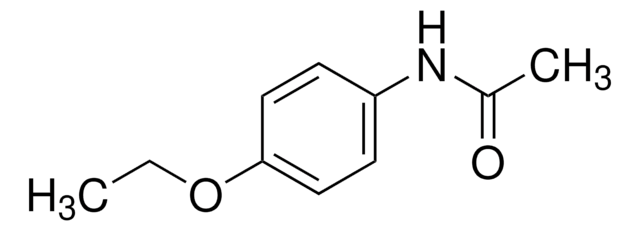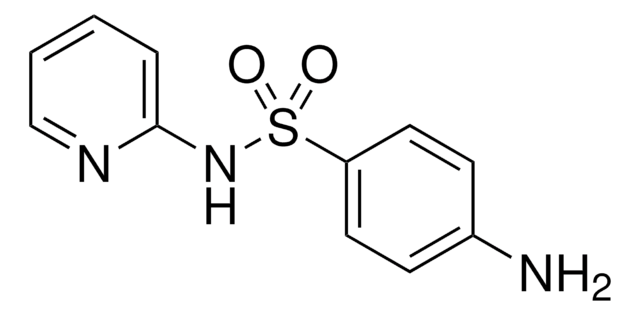PHR1448
Sulfadimethoxine
Pharmaceutical Secondary Standard; Certified Reference Material
Synonym(s):
Sulfadimethoxine, 4-Amino-N-(2,6-dimethoxy-4-pyrimidinyl)benzenesulfonamide
About This Item
Recommended Products
grade
certified reference material
pharmaceutical secondary standard
Quality Level
Agency
traceable to USP 1626001
API family
sulfadimethoxine
CofA
current certificate can be downloaded
packaging
pkg of 500 mg
technique(s)
HPLC: suitable
gas chromatography (GC): suitable
application(s)
pharmaceutical (small molecule)
format
neat
storage temp.
2-30°C
SMILES string
COc1cc(NS(=O)(=O)c2ccc(N)cc2)nc(OC)n1
InChI
1S/C12H14N4O4S/c1-19-11-7-10(14-12(15-11)20-2)16-21(17,18)9-5-3-8(13)4-6-9/h3-7H,13H2,1-2H3,(H,14,15,16)
InChI key
ZZORFUFYDOWNEF-UHFFFAOYSA-N
Looking for similar products? Visit Product Comparison Guide
General description
Application
Analysis Note
Other Notes
Footnote
related product
Signal Word
Warning
Hazard Statements
Precautionary Statements
Hazard Classifications
Acute Tox. 4 Oral
Storage Class Code
11 - Combustible Solids
WGK
WGK 3
Certificates of Analysis (COA)
Search for Certificates of Analysis (COA) by entering the products Lot/Batch Number. Lot and Batch Numbers can be found on a product’s label following the words ‘Lot’ or ‘Batch’.
Already Own This Product?
Find documentation for the products that you have recently purchased in the Document Library.
Our team of scientists has experience in all areas of research including Life Science, Material Science, Chemical Synthesis, Chromatography, Analytical and many others.
Contact Technical Service






